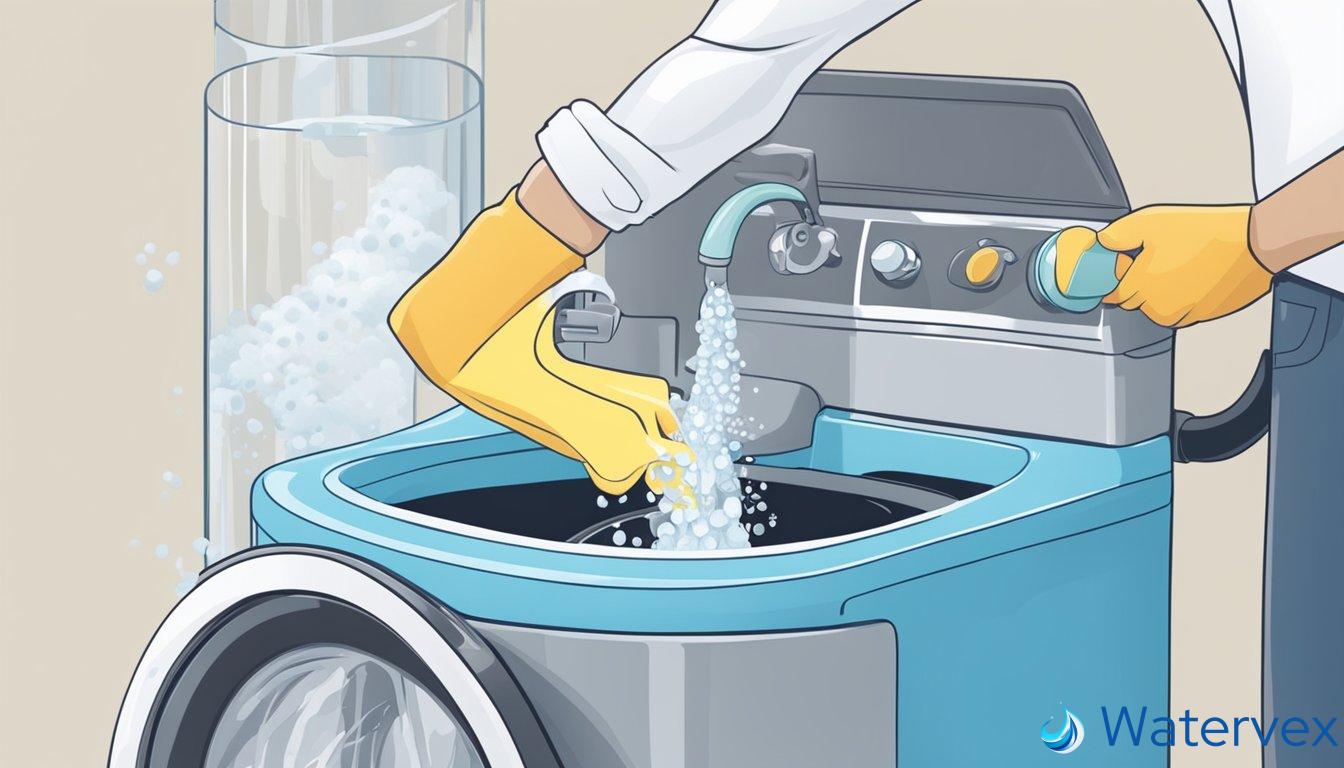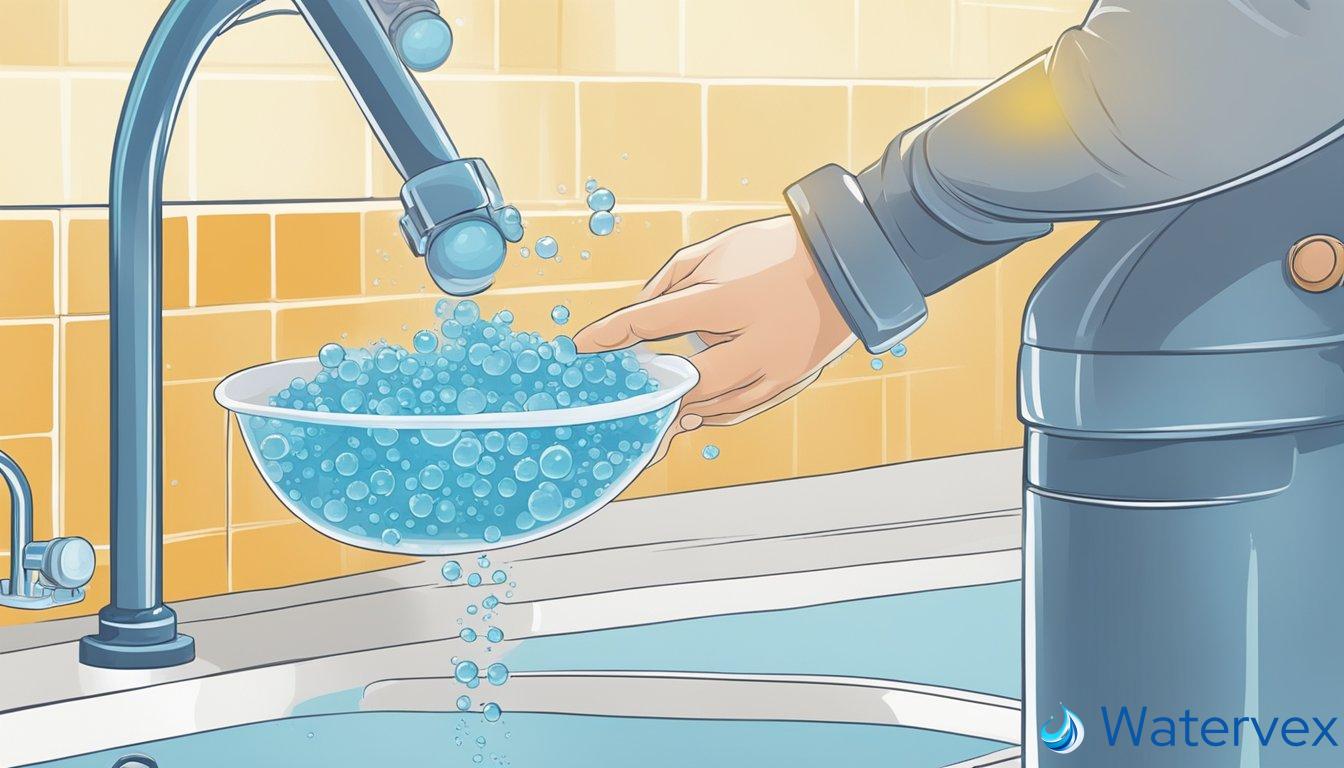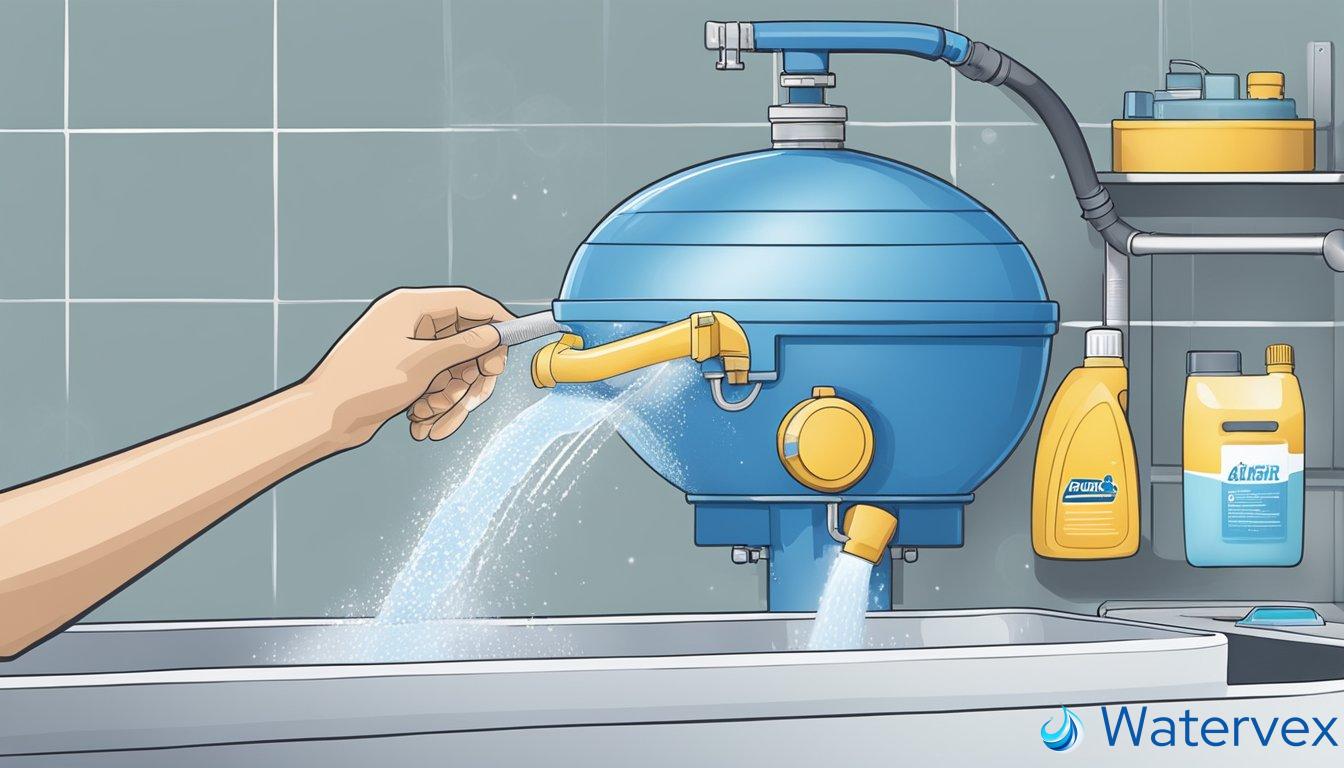Water softener cleaners are specialized solutions designed to maintain water softening systems by removing mineral deposits and contaminants that can diminish the effectiveness of the softening process. Over time, minerals like calcium and magnesium, which cause water hardness, can form buildup within the system, particularly in the resin bed. This can obstruct the ion exchange process that is central to softening water. A water softener cleaner can rejuvenate the resin, ensuring that the unit continues to function at its best and provides high-quality water for your home.

To achieve the highest water quality and prolong the life of your water softening system, it is essential to use a resin bed cleanser. These cleaners dislodge and flush out accumulated minerals and iron that regular salt regeneration may leave behind. By ensuring consistent usage, following the manufacturer’s recommendations, you’ll likely experience fewer issues with your system, and your appliances that use water will reap the benefits too. Regular maintenance of your water softener is more than just a chore; it’s a necessary step to ensure your household water remains effective and safe.
Key Takeaways
- Water softener cleaner maintains water quality by cleaning mineral buildup.
- Regular use of resin bed cleanser is crucial for efficient water softening.
- Periodic maintenance extends the life of your water softening system.
What Is Water Softener Cleaner?
Water softener cleaners are a key component in maintaining water softening systems. Your water softener works hard to remove minerals like calcium and magnesium from your water, which are responsible for hard water’s adverse effects on your plumbing and skin. Over time, the resin beads in your water softener that trap these minerals can become coated with iron and other contaminants, leading to decreased efficiency.
To ensure your water softeners continue to function optimally, water softener cleaner is utilized. This cleaner is specially formulated to clean the resin beads. During cleaning, the product aids in the removal of accumulated minerals and contaminants that plain salt can’t wash away. This results in rejuvenated resin, prepared to efficiently soften water again.
Using a cleaner is simple and involves adding the product directly to the softener’s brine tank. The type of cleaner might vary—some are liquid, others are powdered—but they all serve the same purpose of keeping the resin in top condition. You’ll find that maintaining your system with a proper cleaner will help in preserving the longevity of your water softener and can improve its performance, saving you on salt and water usage in the long run.
For the best results, regularly scheduled use of water softener cleaning products is recommended. How often you should use a cleaner depends on your water usage and the level of mineral content in your water. However, many manufacturers suggest applying a cleaning agent to your water softener system every few months to avoid the inefficiency and potential failure of the unit.
Why Should You Use a Resin Bed Cleanser?

To keep your home’s water supply soft and functioning effectively, it’s crucial to understand the value of a resin bed cleanser in your water softening system.
Benefits of Regular Cleaning
When you regularly clean the resin bed of your water softener, you remove accumulated minerals like calcium and magnesium. These minerals are picked up by the resin as part of the water softening process. Without cleaning, the resin becomes less effective at attracting hard water minerals, leading to hard water problems.
Impact on Water Softener Efficiency
A clean resin bed is essential for maintaining the regeneration cycle efficiency of your water softener. If the resin is clogged with minerals or iron, the system must work harder, using more salt and water and still may fail to properly soften the water. This means higher costs for you and less quality water.
Protecting Your Appliances and Plumbing
Beyond just efficiency, maintaining a clean resin bed is vital for the longevity of your appliances and plumbing fixtures. Hard water can cause scale buildup and damage over time. By using a resin bed cleanser, you are not only ensuring softer water but you are actively protecting your home investments against the adversities of scale and mineral deposits.
How Often to Treat Your Water Softening System?

Regular maintenance of your water softening system is crucial to ensure its longevity and performance. Staying ahead with scheduled cleanings and being aware of signs that your system requires attention is key.
Scheduling Maintenance for Optimal Performance
Your water softener plays a significant role in removing unwanted minerals from your water supply, and to keep it working efficiently, regular service is necessary. The regeneration process, where salt renews the resin beads that capture minerals, can be hindered by issues such as a salt bridge, which is a hard crust that forms in the brine tank, often due to high humidity or using the wrong type of salt.
- Frequency: Typically, you should check the brine tank at least once a month for any salt bridges or other irregularities, and a more thorough cleaning should be done every 6 to 12 months.
- Factors affecting scheduling:
- Water usage and hardness: Households with higher water usage or harder water may need more frequent maintenance.
- Presence of iron or manganese: These can cause rust and other buildups, necessitating more frequent cleanings.
Signs That Indicate a Need for Cleaner
To maintain the cleaning effectiveness of your water softener, watch for these indicators that suggest it’s time for a thorough cleaning:
- Decrease in water pressure: This could signal mineral buildup in the resin beads or in the lines.
- Changes in water quality: If your water starts to feel hard or scale appears on appliances despite your softener, it might be time for service.
- Odd tastes or smells: These can be caused by iron, manganese, or organic compounds affecting your resin beads.
Regular maintenance not only prolongs the life of your water softener but also ensures you enjoy clean, soft water for daily use. Make a note to check on your system to prevent any long-term issues.

